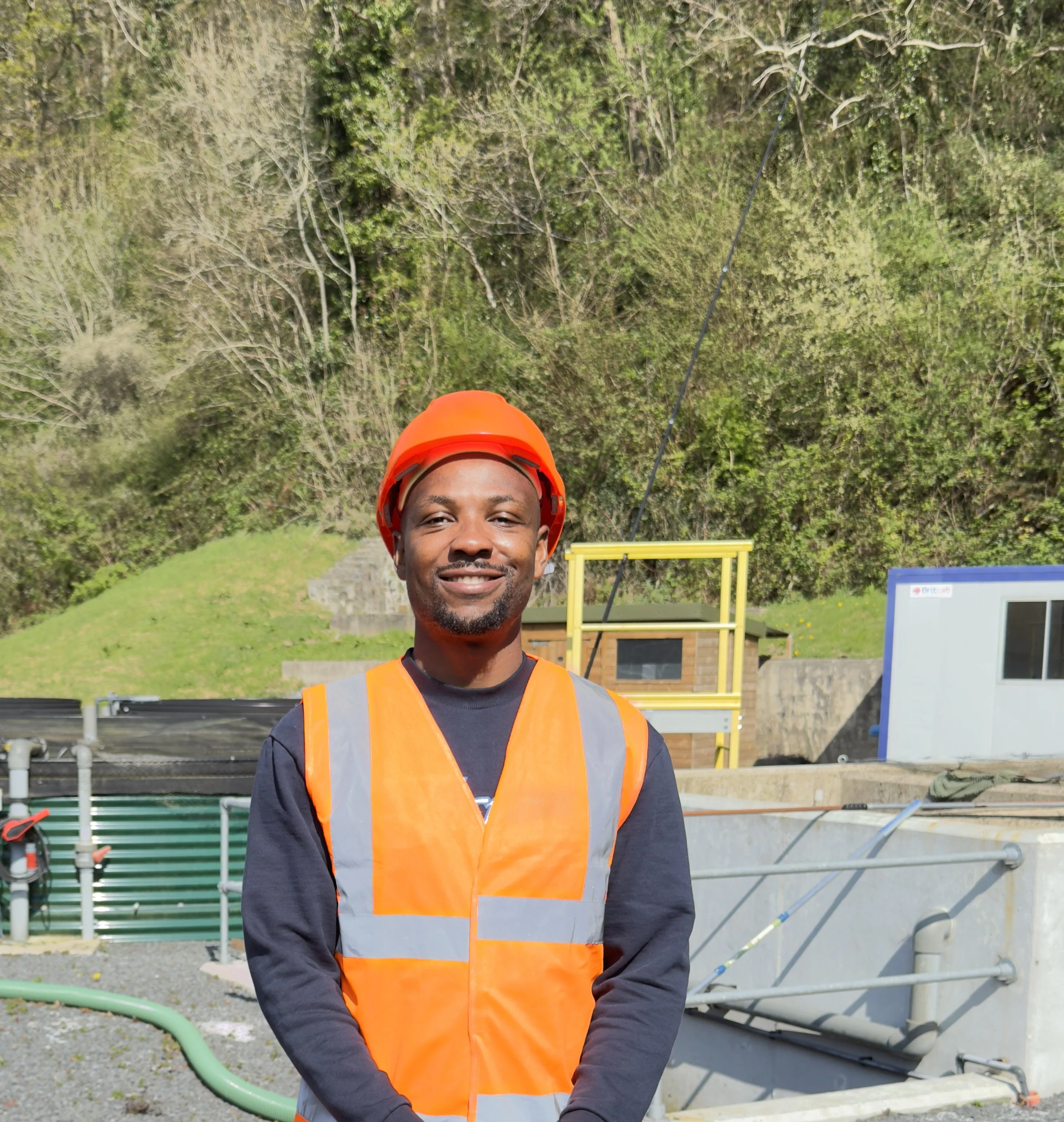From a 16-year-old’s Prototype to Scalable Impact with Aqua Solutions
Written by Allen Chafa
In 2013, at the age of 16, I stood beside a handmade, solar powered well prototype at my secondary school in Harare, Zimbabwe. A local newspaper called it “innovative,” but for me, it was about survival. Following the country’s 2008 cholera outbreak, which claimed over 4,000 lives, access to safe water became a matter of life and death. Building that system was not just a science project but a desperate response to the systemic collapse. That makeshift system taught me a fundamental lesson: real problems do not wait for perfect solutions. While formal engineering education provided me with the tools to optimise and refine, that crude prototype taught me the weight of responsibility. This blend of lived experience and formal training sparked a question that has guided my work ever since: What kind of engineer do I want to become?
A decade later, this question led me to co-found Aqua Solutions, a venture that develops affordable, real-time water purification systems for underserved communities. We design infrastructure that is both locally grounded and scalable. At our core, we follow a human-centered design process. Rather than imposing a solution, we collaborate directly with communities, engaging users to shape the system's implementation. In early trials, we discovered that maintaining water quality post-purification required more than technical precision; it had to align with daily practices. We collaborated with residents to introduce simple, adapted routines for safeguarding water during storage and use. The results were powerful. Our solution now serves three peri-urban communities, reaching more than 250 households, and users have reported a 40% reduction in the time spent collecting water. In Epworth, one mother shared, “For the first time, I do not have to boil water to feel safe giving it to my child.”
This tangible impact on the ground and the stories from the communities we serve led to prestigious recognition from the Royal Academy of Engineering and the Zimbabwe Institution of Engineers. This endorsement gave us the confidence to critically assess our operations for the next stage of growth. We identified that to scale our impact effectively; we needed to strengthen our business model – a challenge that led to a crucial turning point when we joined the King’s Entrepreneurship Lab. The program pushed us to articulate our work not only as a social mission but also as a viable commercial proposition. We developed a clear impact measurement framework tied directly to our revenue streams, ensuring that our social purpose was core to our operations. Through Pitch@Kings sessions, we sharpened our ability to speak to different audiences, from peers to investors, and the Weekly Brunches brought us into conversation with industry leaders, whose stories offered inspiration and pushed us to think bigger. This preparation, along with an immersive social venture residential with the Mastercard Foundation Scholars Program, proved critical in connecting us with entrepreneurs facing similar scaling challenges across Africa and providing us with frameworks we could immediately apply. The skills we gained allowed us to present our mission with newfound clarity and confidence, ultimately leading us to a runner-up position in the Mastercard Foundation Entrepreneurship Prize. The accompanying funding is instrumental in furthering our mission and expanding our reach.
Today, water insecurity in Harare reflects a broader crisis across sub-Saharan Africa. Over 400 million people in the region still lack access to basic drinking water, and the gap is widening as urban populations grow by 4–5% annually in many cities. Centralised systems are struggling to keep pace, particularly in informal and peri-urban areas, where infrastructure investment often lags behind the need. In this context, decentralised technologies like ours offer a critical bridge. At Aqua Solutions, we are expanding our platform to address diverse water challenges, from industrial effluent monitoring and aquaculture to food safety. Our ambition is to build equitable and resilient infrastructure that responds to how people live – with integrity, accessibility, and systems thinking.
I often think back to that moment in 2013, when I was holding salvaged solar panels together with tape. That prototype showed me that innovation begins with necessity and that engineering without social purpose is inadequate. It taught me that sustainability is not a fixed goal but a way of working. I now have an answer to the question that I asked myself a decade ago. I am the kind of engineer who listens before building, designs with complexity in mind, and works so that no one has to engineer a basic human right for themselves at 16.
Allen Chafa is a Mastercard Foundation Scholar and an MPhil student in Engineering for Sustainable Development at the University of Cambridge, where he is a member of Girton College and the King’s E-Lab. He holds an MSc in Advanced Engineering Management from the University of Birmingham. His research focuses on the intersection of engineering, innovation, and sustainability, with particular interest in how early-stage ventures navigate sustainability during technical and product design under conditions of constraint and uncertainty. He is the co-founder of Aqua Solutions, a social enterprise that tackles water insecurity in Zimbabwe through smart, real-time water quality monitoring and control systems. Allen’s contributions have been recognised by several organisations, including the Royal Academy of Engineering’s Africa Prize for Engineering Innovation, the Mastercard Foundation Entrepreneurship Prize, the Zimbabwe Institution of Engineers Award, and AFBE-UK’s Next Big Idea.

